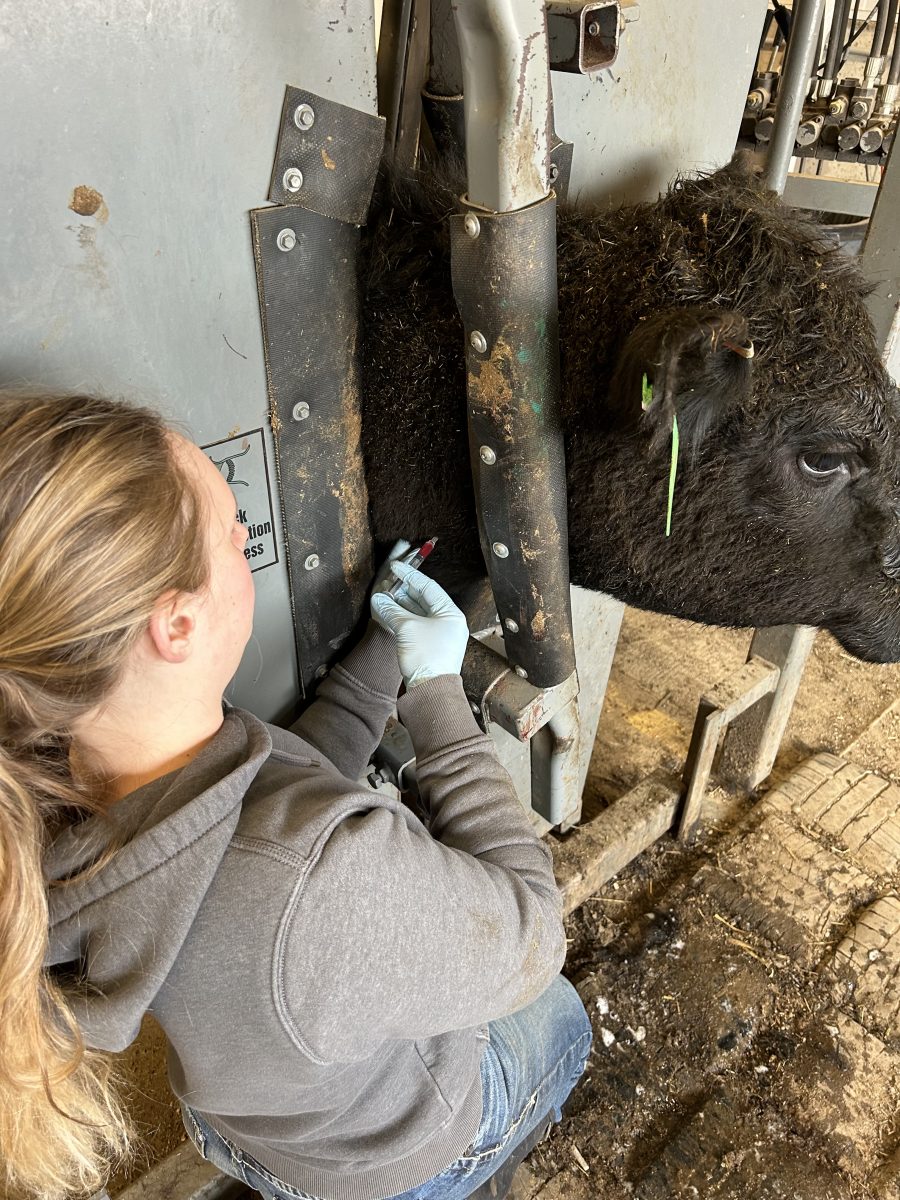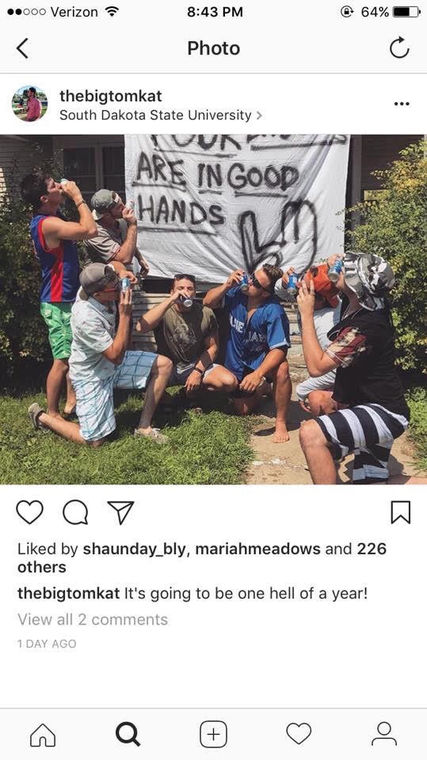“Your daughters are in good hands,” the sign read. And underneath it, the drawing of a hand making the sexually suggestive “shocker” symbol. In front of it, seven men drinking beer.
“It’s going to be one hell of a year!” senior economics major Thomas Swanson commented underneath it.
The sign was hung in front of an off-campus residence over move-in weekend late August and has drawn criticism from students and administration after it was widely shared.
Currently, the sign is under investigation by the South Dakota State University Title IX office for harassment.
According to the U.S. Department of Justice, Title IX is a federal law passed in 1972 to eliminate sexual discrimination by any federally-funded education program or activity.
Though she cannot speak specifically on the active investigation, Title IX Equal Opportunity Compliance Coordinator Michelle Johnson said her office is aware of the sign some people find “offensive.”
“Sometimes when people put up similar types of signs or postage, some students may like it, some students may think it’s funny and some students might encourage it,” Johnson said. “And because of that the students who are offended by it can be harmed, but that is something we, of course, have to look into.”
Though the sign was not on campus, Title IX guidelines regarding sexual discrimination and harassment apply to any student enrolled at SDSU, whether they are on campus or not, Johnson said.
South Dakota State alumna Mercedes Muñoz saw the post when she was browsing Instagram, took a screen shot and shared it on her Facebook page.
“When I see this image, it makes me uncomfortable. It brings back awful memories,” Muñoz said.
Muñoz said she was sexually assaulted her sophomore year at SDSU. She believes the people who wrote the sign, though they have a “right to express freedom of speech,” are mentors and should not be teaching those behaviors to younger men.
“I don’t think they should have posted that image and tagged SDSU. I don’t think they should be in an SDSU fraternity and post that picture, or hang up that sign,” she said. “Those men represent SDSU, and they are showing others that those actions are acceptable.”
Swanson apologized for the sign Aug. 27 in a Facebook post, a day after his original Instagram post.
“To anyone hurt or offended by my previous post, I’m sorry,” Swanson wrote in the post. “Was this in poor taste and stupid? Yes. I would never in my life condone poor treatment of anyone, especially women. Anyone that knows me I hope would know this about me.”
Swanson made his social media accounts private for a short amount of time until “things cooled down,” and then posted the apology.
“I, as well as my family members, were then bombarded with a very few, but loud, people on social media harassing us, saying how terrible of people we are,” Swanson said. “I personally didn’t want to reply to feed into the social media frenzy.”
Swanson said he was called many names, but being referred to as a “rape apologist,” was one that stuck with him the most.
“Anyone that knows me knows I would never even wish harm on someone, much less something as terrible as that,” he said.
Swanson said he is aware of the Title IX investigation and is looking forward to “setting the record straight.” It is unclear whether conduct charges will be brought against Swanson and the other students involved.
“Whenever we look at information on a harassment basis, one of the things we really have to balance is the right for an individual to have freedom of speech versus the rights of the campus community,” Johnson said. “If it causes some emotional distress and some harm, that’s when we have to step in and investigate to determine whether or not it is freedom of speech or if it’s harassment.”
Director of Diversity, Equity, Inclusion and Access Nathan Ziegler said the sign and the humor behind it are endemic of the societal issues involving the objectification of women and a hypersexualized society.
“There’s kind of two messages there, one is the sentence that was on the banner, ‘your daughters are in good hands.’ If you kind of break down what that is implying, it’s implying that women are objects,” Ziegler said. “It’s objectifying them, it’s making them seem like property. It’s a continuation of traditions that have viewed women as that for centuries.”






















